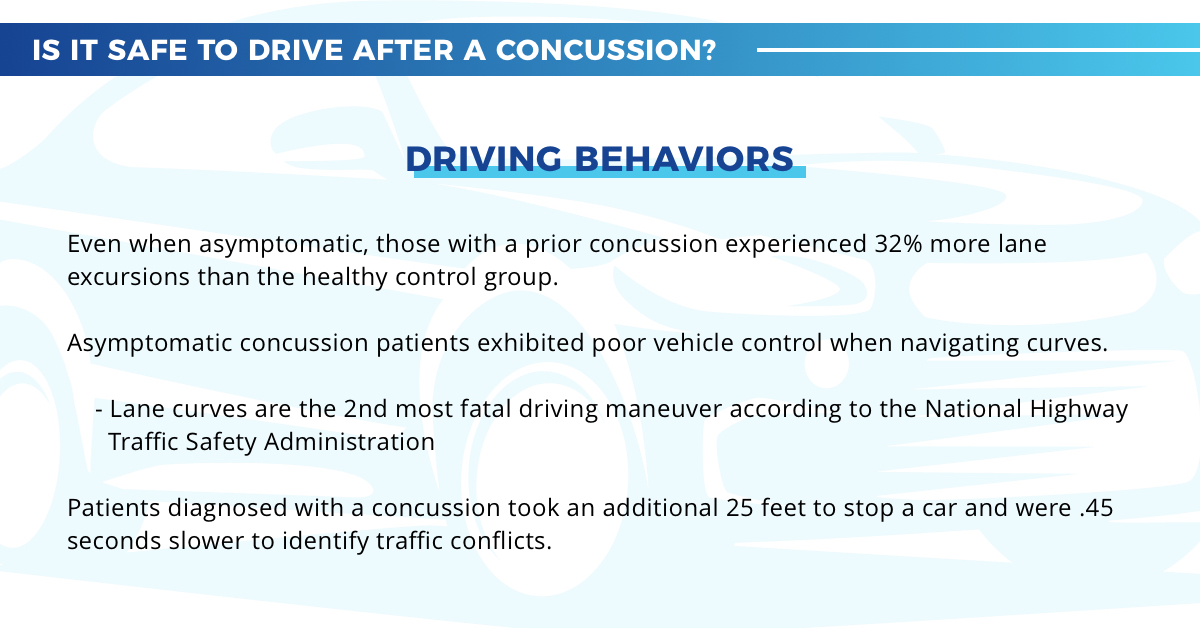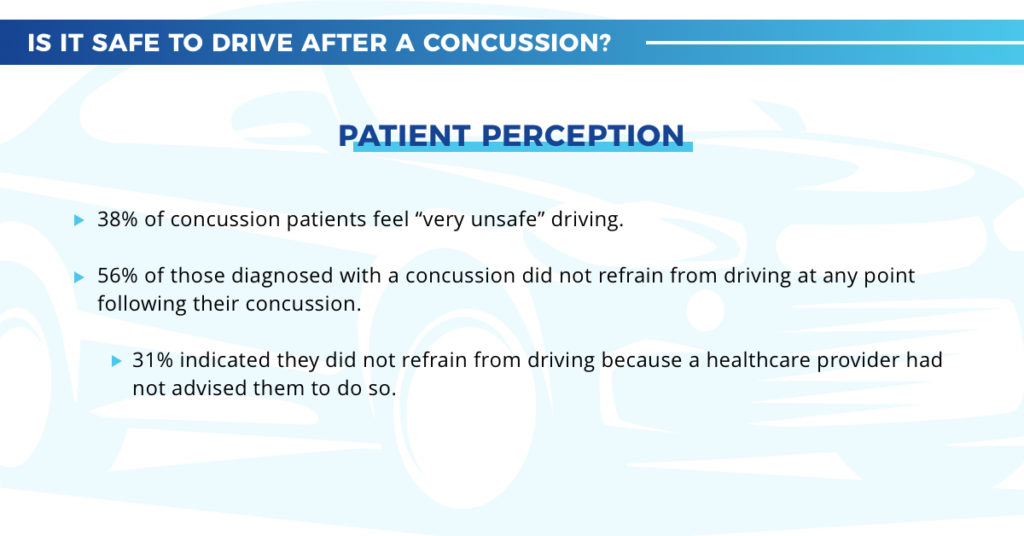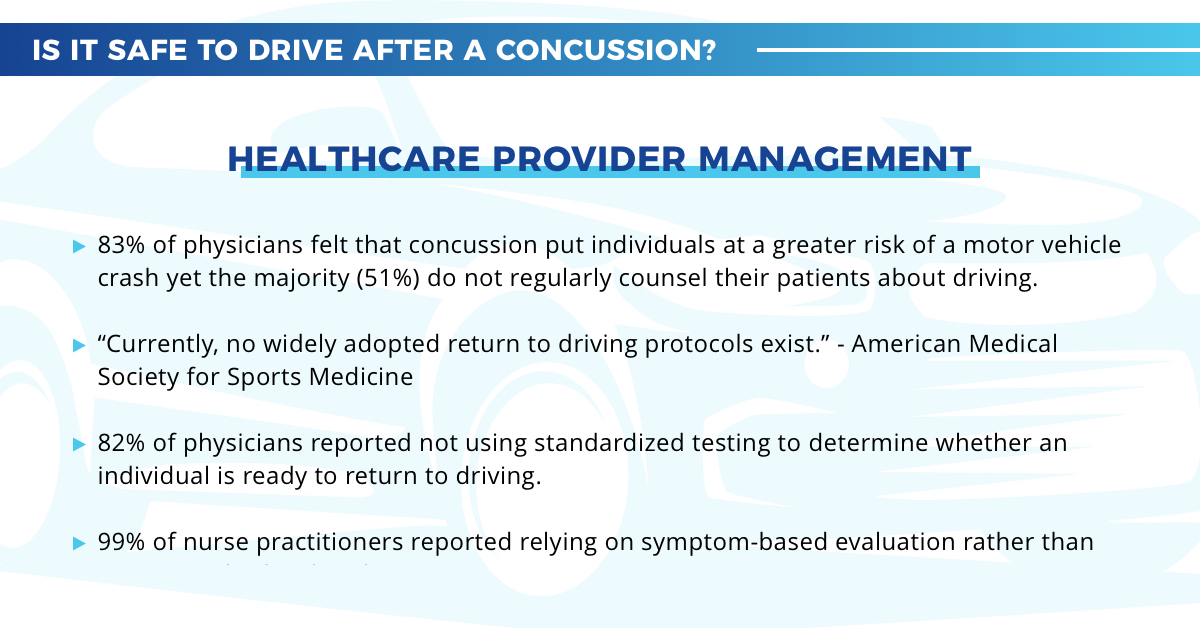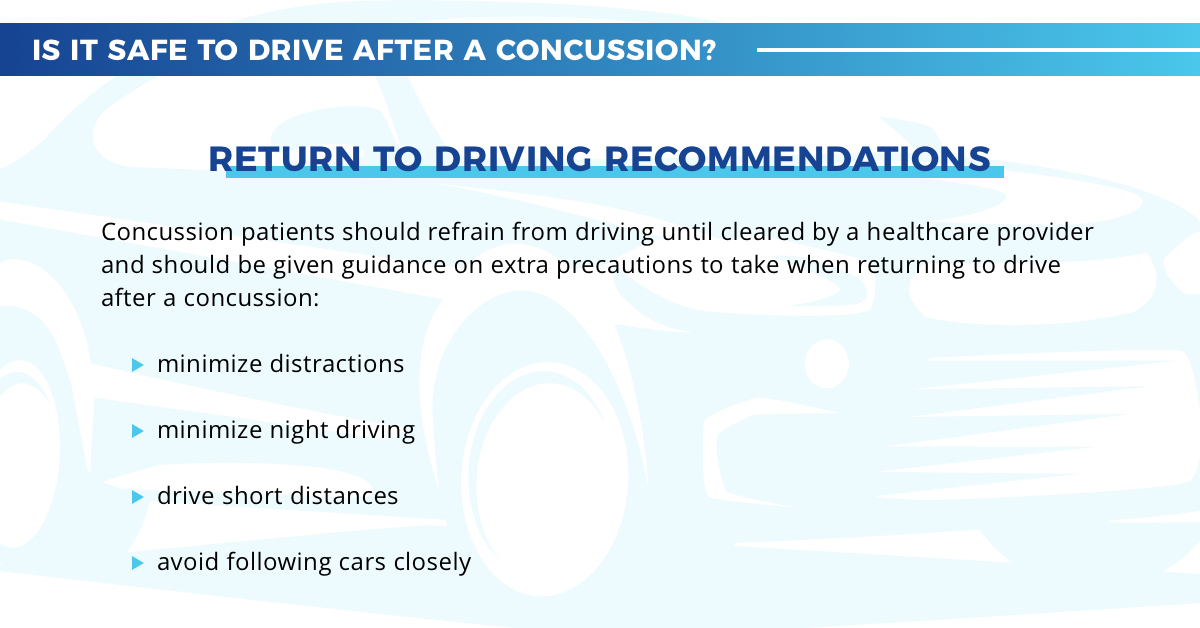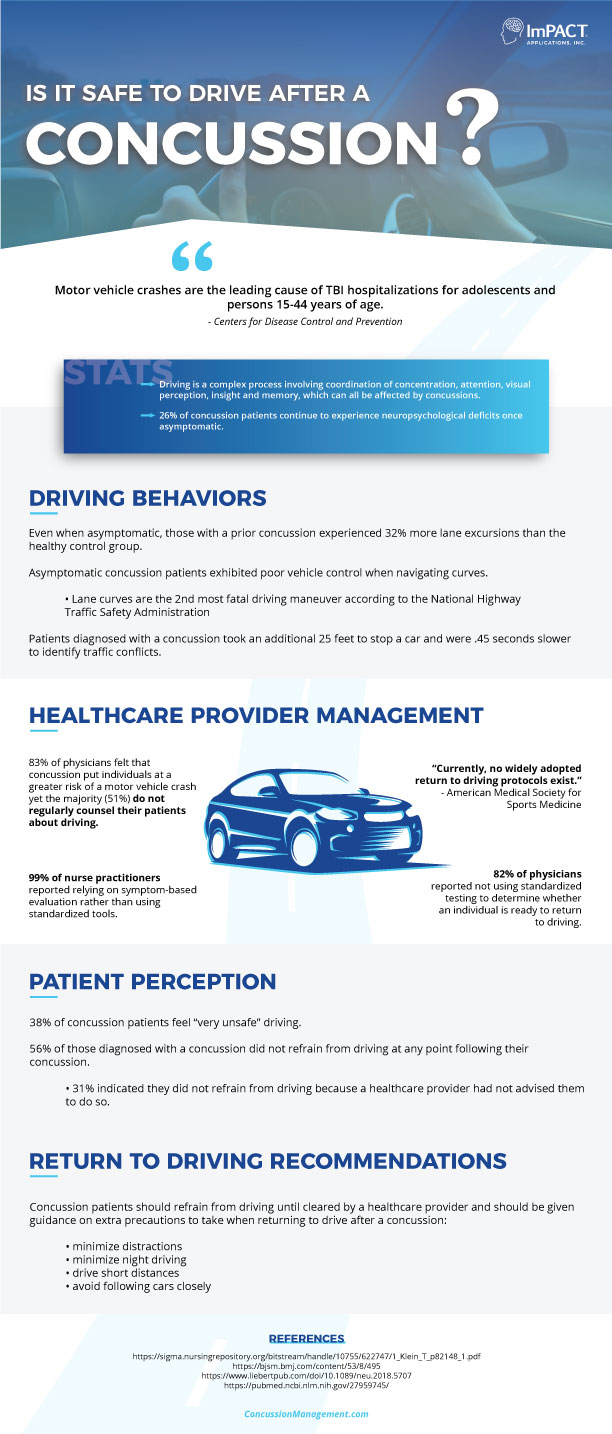Driving After Concussion: Is it safe to be on the road?
How long should you wait to drive after a concussion?
Driving is a complex process involving many cognitive tasks including concentration, attention, visual perception, insight and memory, which can all be affected by concussions. While there is not enough research on this topic to make a standardized and widely accepted recommendation, it’s important for healthcare providers to address return to driving on a patient-by-patient basis because of the potential danger to both the patient and the public should they return to driving too soon. This may be 24-48 hours after a concussion, until symptoms clear, or when neurocognitive test results indicate it’s safe to do so.
Driving After Concussion: Patient Perception and Behaviors
Common neuropsychological deficits following a concussion include slower reaction time, decreased executive function, and lower attention. These neurological deficits persist in 26% of concussion patients even once asymptomatic (McCrea et al., 2015).
A study using a driving simulation found that the group with prior concussions experienced 32% more lane excursions than the healthy control group and exhibited poor vehicle control when navigating curves (Schmidt et al., 2017), which is the second most fatal driving maneuver according to the National Highway Traffic Safety Administration. Patients diagnosed with a concussion also took an additional 25 feet to stop a car and were .45 seconds slower to identify traffic conflicts (Preece et al., 2010).
Despite concussion patients commonly feeling that driving immediately after a concussion was very unsafe, the majority (56%) did not refrain from driving at any point following their concussion. Of those who did not refrain from driving, 31% indicated the reason being a healthcare provider had not advised them to do so (Schmidt et al., 2018).
Patients need more education on how concussions affect cognitive functioning needed for driving that may put them at higher risk of a motor vehicle accident. It’s also important for healthcare providers to make a recommendation for safe return to driving.
Driving After Concussion: Healthcare Provider Management
Most physicians (83%) agree that concussion puts individuals at a greater risk of a car accident, yet the majority (51%) do not regularly counsel their patients about driving after a concussion. Additionally, 82% of physicians and 99% of nurse practitioners reported not using standardized testing to determine whether an individual is ready to return to driving (Lucas et al., 2019; Klein et al., 2017).
Since concussion patients may continue to experience cognitive deficits even once asymptomatic, healthcare providers should make return to driving recommendations including how long the patients should refrain from driving and extra precautions for them to take once they return to driving such as avoiding night driving, avoiding additional distractions (driving other people, listening to the radio, etc.), avoiding high-traffic times, and avoiding driving while fatigued.
